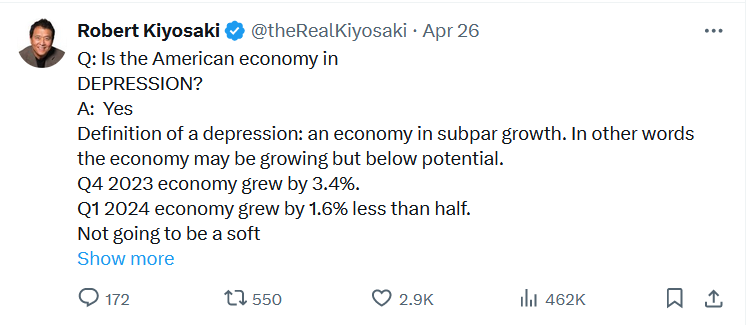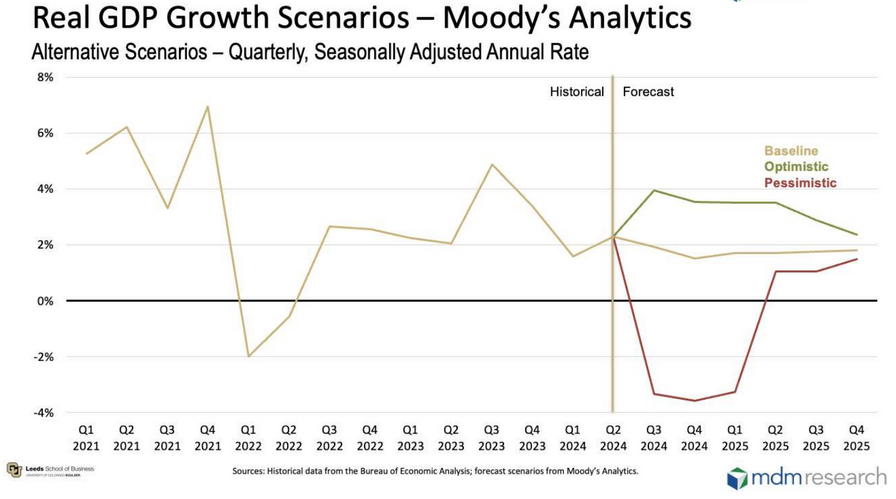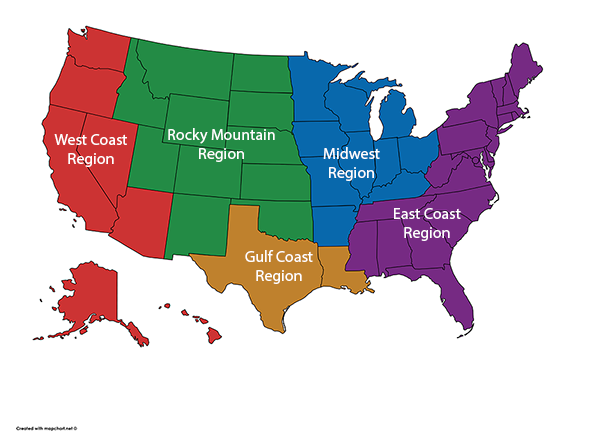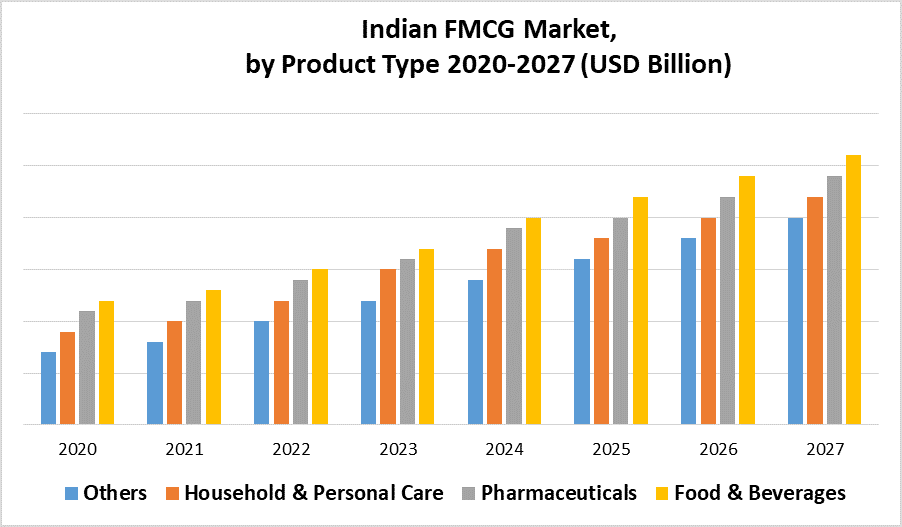The current economic scenario for distributors in USA is uncertain and challenging. Inflation is very high; Interest rates are rising and consumer confidence is falling. These factors have increased the possibility of a recession in the US economy in the coming months. At such a time, distributors in USA should be prepared for this possible recession, and wholesale suppliers in the United States should reconsider their operations to build a solid presence among others.
Robert Kiyosaki, a famous investor, entrepreneur, financial education advocate, and author of the well-known book “Rich Dad Poor Dad, ” indicated that the American economy is depressed.

The same was noticed when the latest Moody’s Analytics forecast revealed a considerable decline in the overall 2024 revenue outlook for U.S. wholesale distribution. As per the Leeds School of Business survey forecast, all but 2 of the 19 wholesale distribution sectors moved more pessimistic month-to-month in their May forecast for 2024 revenue growth. Surprisingly it moved into very low single digits.

This shows that distributors, and USA wholesalers are heading towards recession and may face huge losses in the coming few years if no strict action is taken now. So, let us first discuss the major concerns and risks and then look at trending solutions on how to stay ahead in business and earn more profits.
Risks and Concerns
Distributors in USA are well aware of the potential risks that posed by an economic slowdown. During a recession, distributors face many risks and concerns that are challenging for them to deal with. These are:
Less consumer spending less
One of the primary concerns is a potential decrease in consumer demand, which could directly impact sales and profitability. During the recession, it has been observed that many customers avoid purchasing unnecessary things and due to this the demand for non-essential items starts decreasing, which forces the wholesalers in the United States to reevaluate their inventory levels and pricing strategies.
Supply chain disruptions
Another significant risk factor is the possibility of disruption in the supply chain. In an interconnected global economy, even minor issue in the supply chain can have severe effects, leading to delays, shortages, and increased costs.
Wholesale suppliers in the USA are actively exploring ways to mitigate these risks by diversifying their supplier base and strengthening relationships with domestic sub distributors and suppliers.
Lack of access to credit and capital
Further, US wholesalers face serious concerns about credit tightening and reduced access to capital during an economic downturn. At such times, lenders become very cautious and find it difficult to extend loans to businesses. This creates many challenges for US distributors.
For example, lack of capital to purchase new storage centers or vehicles, may restrict expansion and growth for most wholesalers in USA. Also, operations may be disrupted if sufficient funds for not available for working capital and fixed expenses.
Lack of cash flow can be a big problem and Distributors in the USA may have difficulty paying their creditors and suppliers on time. This may affect their creditworthiness and lead to problems in taking loans in the future.
Therefore, American distributors are already preparing to avoid such a situation. They are considering increasing their cash reserves and looking for other alternative financing sources. At the same time, they also want to maintain good relations with the lenders so that they can get loans in case of need in future.
Labour challenges
Another major concern, a recession also brings the challenge of cutting wages and other costs. Distributors have to ensure that they remain affordable to their employees without laying them off. They also have to cut operating costs but without affecting their core functions and it is very challenging.
Brand value
Additionally, during a recession is maintaining the reputation and brand image of distributors. It is important to maintain trust among customers so that they return to them even after the crisis. Therefore, distributors have to pay special attention to their communication and marketing.
Data-driven Decisions by USA Distributors
As the distributors in USA are facing economic uncertainties and challenging conditions, they are opting for data-driven decision-making to stay ahead of the curve. Inflation, domestic conflicts, and supply chain disruptions have hit companies, reducing demand and increasing costs. Despite these adverse conditions, USA wholesalers are moving ahead wisely.
They are taking the advantage of data and analytics tools, helping them make quick and data-driven decisions. Investing in digital tools and technologies provides improved transparency and efficiency for distributors in the United States. It also enables one to avoid traditional troubling customs. Here are some emerging technologies that are helping distributors in the United States earn better profits amid the recession.
Analytics & forecasting tools
Advanced analytics and forecasting tools are being leveraged to gain insights into consumer behavior, demand patterns, and market trends. By analyzing historical data and real-time market intelligence, wholesale suppliers in the United States can make informed decisions about inventory management, pricing strategies, and resource allocation.
Inventory management tool
One crucial area of focus is inventory optimization. USA wholesalers are implementing lean inventory management practices to minimize excess stock and reduce carrying costs. By closely monitoring sales patterns and demand forecasts, they can make quick decisions about what to stock and in what quantities, minimizing the risk of overstocking or stockouts. This way they can better aim to reduce excess inventory while ensuring there is enough stock to meet customer needs.
Diversification and new revenue streams
Furthermore, distributors in USA are exploring new revenue streams and diversifying their product portfolios. By offering a broader range of goods and services, they can reduce their reliance on any single market segment or product line.
Some wholesale suppliers in the United States are even venturing into e-commerce and direct-to-consumer sales, leveraging the power of digital platforms to reach a wider customer base.
Cost Optimization
Wholesale providers in the United States are evaluating their operations to identify areas where they may save money. This could include negotiating better prices with suppliers, simplifying shipping operations, or investing in automation technology. Distributors in the United States can increase their profit margins and compete in a hard market by optimizing their costs.
Collaboration with partners
Collaborations and strategic partnerships are quite helpful in gaining hold among distributors in the USA. By forming alliances with complementary businesses, they can share resources, expertise and market access, effectively mitigating risks and better taking advantage of new opportunities.
Final Words
As the economic landscape changes, distributors in USA are taking proactive steps. To get through the recession, they are implementing data-driven methods and adopting new strategies. US distributors and wholesalers are analyzing the data to focus on improvement areas.
Additionally, US wholesalers are also adopting digitalization and innovative marketing methods. They are trying to reach customers and cut costs by focusing on areas like online sales and supply chain management.
These efforts will not only help USA distributors deal with the current recession but will also benefit them in the future. Innovation and modernization will make their businesses more efficient, flexible and competitive. In this way they will be able to build a strong base and be able to move forward.
By Aradhana Nayak (aradhananayak96@gmail.com)



